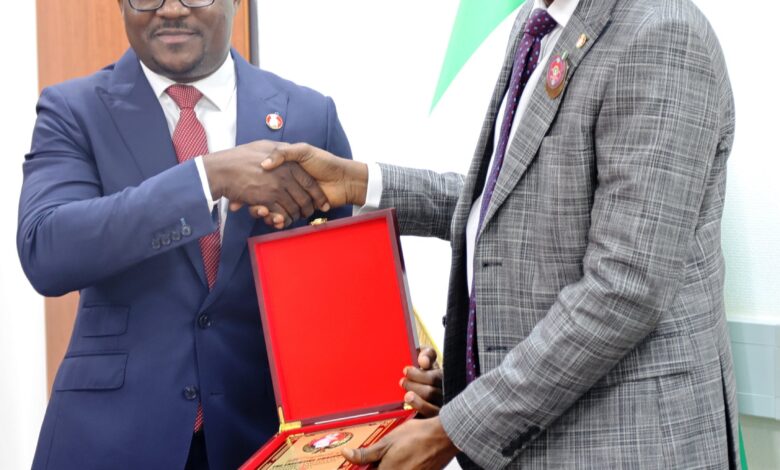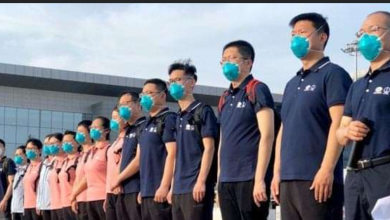The Role and Responsibilities of an Ambassador: Key Factors for Effective Diplomacy

An ambassador serves as the highest-ranking representative of their country in a foreign nation, playing a pivotal role in maintaining and enhancing diplomatic relations. This prestigious position involves a range of responsibilities, from political negotiation to cultural exchange, and requires a comprehensive understanding of international relations. Here, we explore the key factors and responsibilities that define the role of an ambassador.
Understanding the Role of an Ambassador
Diplomatic Representation
An ambassador is the face of their home country in the host nation. They represent the political, economic, and cultural interests of their country and work to strengthen bilateral ties.
Political Advocacy
Ambassadors engage in political advocacy, promoting their country’s foreign policy objectives. This involves negotiating treaties, participating in diplomatic discussions, and addressing international issues that impact their nation’s interests.
Economic Promotion
Promoting trade and investment is a critical responsibility of an ambassador. They work to attract business opportunities, support economic partnerships, and advocate for favorable trade agreements between their home country and the host nation.
Cultural Diplomacy
Cultural exchange is another significant aspect of an ambassador’s role. They promote their country’s culture, heritage, and values through various programs and events, fostering mutual understanding and goodwill.
Key Responsibilities of an Ambassador
1. Maintaining Diplomatic Relations
Building and Sustaining Relationships
Ambassadors must build and sustain relationships with key officials and influencers in the host country. This involves regular meetings, diplomatic receptions, and strategic networking to foster positive relations.
Crisis Management
In times of political or economic crises, ambassadors play a crucial role in managing the situation. They must provide accurate information to their home government, offer support to citizens abroad, and work to mitigate any adverse impacts on bilateral relations.
2. Economic and Trade Affairs
Promoting Trade
Ambassadors actively promote trade between their home country and the host nation. This includes facilitating business delegations, organizing trade fairs, and providing support to domestic companies looking to enter the foreign market.
Economic Reporting
Ambassadors provide detailed reports on the economic conditions and market opportunities in the host country. These reports help businesses and policymakers make informed decisions.
3. Consular Services
Assisting Nationals Abroad
One of the primary duties of an ambassador is to provide assistance to their country’s citizens living or traveling abroad. This includes offering consular services such as passport renewals, visa applications, and emergency assistance.
Legal and Administrative Support
Ambassadors also provide legal and administrative support to nationals facing legal issues or other challenges in the host country.
4. Cultural and Public Diplomacy
Organizing Cultural Events
Ambassadors organize cultural events, exhibitions, and educational programs to promote their country’s culture and heritage. These events help build a positive image and foster cultural exchange.
Media Relations
Managing media relations is crucial for an ambassador. They must communicate effectively with the press, provide timely information, and counter any misinformation about their country.
5. Reporting and Advising
Political Analysis
Ambassadors are responsible for providing detailed political analysis and insights about the host country’s internal and external affairs. This information is vital for shaping their home country’s foreign policy.
Policy Recommendations
Based on their observations and analysis, ambassadors offer policy recommendations to their home government, advising on the best course of action in diplomatic and international matters.
Factors for Effective Ambassadorship
1. Strong Communication Skills
Effective communication is essential for an ambassador. They must articulate their country’s positions clearly, negotiate diplomatically, and foster positive relations through skilled dialogue.
2. Cultural Sensitivity
Cultural sensitivity and awareness are critical for successful diplomacy. Ambassadors must respect and understand the host country’s customs, traditions, and social norms to build trust and rapport.
3. Political Acumen
A deep understanding of international politics and the host country’s political landscape is crucial. Ambassadors must navigate complex political environments and represent their country’s interests effectively.
4. Adaptability and Problem-Solving
Ambassadors often face unpredictable situations and challenges. The ability to adapt quickly, think on their feet, and find solutions is vital for effective crisis management and diplomatic success.
5. Integrity and Professionalism
Maintaining the highest standards of integrity and professionalism is essential for an ambassador. They must conduct themselves ethically, uphold their country’s values, and build a positive reputation.
Essential Skills for Effective Diplomatic Representation
To fulfill their role effectively, ambassadors must possess a diverse set of skills:
1. Communication and Interpersonal Skills
Strong communication skills are crucial for building relationships, negotiating, and representing their country’s interests effectively.
2. Cultural Competence
Understanding and respecting the host country’s culture, traditions, and social norms are essential for successful diplomacy.
3. Political Acumen
A deep understanding of international politics and the ability to navigate complex political landscapes is vital for effective representation.
4. Problem-Solving and Adaptability
Ambassadors must be able to think quickly and adapt to changing situations, especially during crises.
5. Integrity and Professionalism
Maintaining high ethical standards and professional conduct is crucial for building trust and credibility.
Political Advocacy: A Crucial Role of an Ambassador
Political advocacy is a fundamental aspect of an ambassador’s responsibilities. It involves representing and promoting their home country’s political interests, negotiating on behalf of their government, and maintaining a positive relationship with the host nation. This vital function requires a deep understanding of international relations, exceptional communication skills, and strategic thinking.
What is Political Advocacy?
Political advocacy in the context of diplomacy refers to the actions taken by an ambassador to influence the political decisions and policies of the host country in favor of their home country’s interests. This includes lobbying for support, negotiating treaties, and working to resolve conflicts or disputes.
Key Responsibilities in Political Advocacy
1. Policy Advocacy
Promoting Foreign Policy Objectives
Ambassadors actively promote their home country’s foreign policy objectives. This involves:
- Lobbying for Support: Persuading the host country’s government to support specific policies or initiatives that benefit their home country.
- Aligning Interests: Identifying and highlighting common interests between the two countries to foster cooperation.
- Public Diplomacy: Using media and public engagements to shape the host country’s perception of their home country’s policies.
Engaging in Bilateral Negotiations
Negotiations are a critical component of political advocacy. Ambassadors negotiate various bilateral agreements, such as:
- Trade Agreements: Establishing terms that benefit their home country’s economic interests.
- Security Pacts: Forming alliances to address mutual security concerns.
- Environmental Treaties: Collaborating on global issues like climate change.
2. Maintaining Diplomatic Relationships
Building Strategic Alliances
Ambassadors build and maintain strategic alliances with key figures in the host country’s government, including:
- Political Leaders: Engaging with presidents, prime ministers, and other high-ranking officials.
- Legislators: Working with members of parliament or congress to gain support for initiatives.
- Civil Servants: Collaborating with government departments and agencies.
Regular Diplomatic Engagement
Regular engagement is crucial for maintaining strong diplomatic ties. This includes:
- Meetings and Dialogues: Conducting frequent meetings with host country officials to discuss ongoing issues and new opportunities.
- Diplomatic Receptions: Hosting and attending formal events to strengthen relationships and foster goodwill.
- Cultural Exchange Programs: Promoting cultural diplomacy to build mutual understanding and respect.
3. Crisis Management
Handling Political Crises
During political crises, ambassadors play a pivotal role in managing the situation. Responsibilities include:
- Providing Accurate Information: Keeping their home government informed with timely and accurate information about the crisis.
- Facilitating Dialogue: Acting as intermediaries to promote dialogue and conflict resolution between the host country and their home country.
- Protecting Interests: Ensuring the protection of their home country’s interests and citizens in the host country.
Conflict Resolution
Ambassadors often mediate disputes to prevent escalation. This involves:
- Negotiating Peace Agreements: Working towards peaceful resolutions in conflict situations.
- Diplomatic Interventions: Using diplomatic channels to de-escalate tensions and promote stability.
- International Collaboration: Engaging with other nations and international organizations to support conflict resolution efforts.
4. Intelligence Gathering and Reporting
Political Analysis
Ambassadors provide their home government with in-depth political analysis of the host country. This includes:
- Monitoring Political Developments: Keeping track of political events, elections, policy changes, and other significant developments.
- Assessing Stability: Evaluating the political stability of the host country and potential impacts on bilateral relations.
- Strategic Insights: Offering insights into the host country’s strategic priorities and potential areas of collaboration or conflict.
Policy Recommendations
Based on their analysis, ambassadors offer policy recommendations to their home government. This involves:
- Identifying Opportunities: Highlighting opportunities for strengthening bilateral relations and advancing their home country’s interests.
- Advising on Risks: Providing advice on potential risks and how to mitigate them.
- Strategic Planning: Contributing to the development of long-term strategies for engaging with the host country.
5. Promoting Democratic Values and Human Rights
Advocacy for Human Rights
Ambassadors often advocate for the protection and promotion of human rights. This involves:
- Engaging with NGOs: Collaborating with non-governmental organizations to support human rights initiatives.
- Public Statements: Making public statements and interventions to highlight human rights abuses.
- Supporting Reforms: Encouraging and supporting political and social reforms in the host country that align with democratic values.
Democratic Governance
Promoting democratic governance is another key aspect of political advocacy. Ambassadors work to:
- Support Elections: Providing assistance and support for free and fair elections in the host country.
- Promote Good Governance: Advocating for transparency, accountability, and rule of law.
- Facilitate Dialogues: Encouraging dialogues between political parties, civil society, and other stakeholders to foster democratic processes.
Essential Skills for Effective Political Advocacy
To effectively carry out political advocacy, ambassadors must possess several essential skills:
1. Negotiation and Persuasion
The ability to negotiate and persuade is critical for achieving favorable outcomes in diplomatic discussions and negotiations.
2. Analytical Thinking
Strong analytical skills are necessary for assessing political situations, identifying key issues, and providing informed recommendations.
3. Communication Skills
Effective communication, both verbal and written, is vital for articulating their home country’s positions and engaging with diverse stakeholders.
4. Cultural Sensitivity
Understanding and respecting the cultural and political context of the host country is essential for building trust and fostering cooperation.
5. Crisis Management
The ability to manage and respond to crises swiftly and effectively is crucial for protecting their home country’s interests and maintaining stability.
Conclusion
The role of an ambassador is multifaceted, requiring a blend of diplomatic skill, political insight, and cultural sensitivity. By effectively representing their country’s interests, promoting economic ties, and fostering cultural exchange, ambassadors play a crucial role in international relations. Understanding and excelling in these responsibilities can lead to stronger bilateral ties and a more prosperous relationship between nations.
For those aspiring to become ambassadors or those interested in the intricacies of diplomacy, these factors and responsibilities provide a comprehensive guide to the vital role ambassadors play on the global stage.
arewanahiya.com







